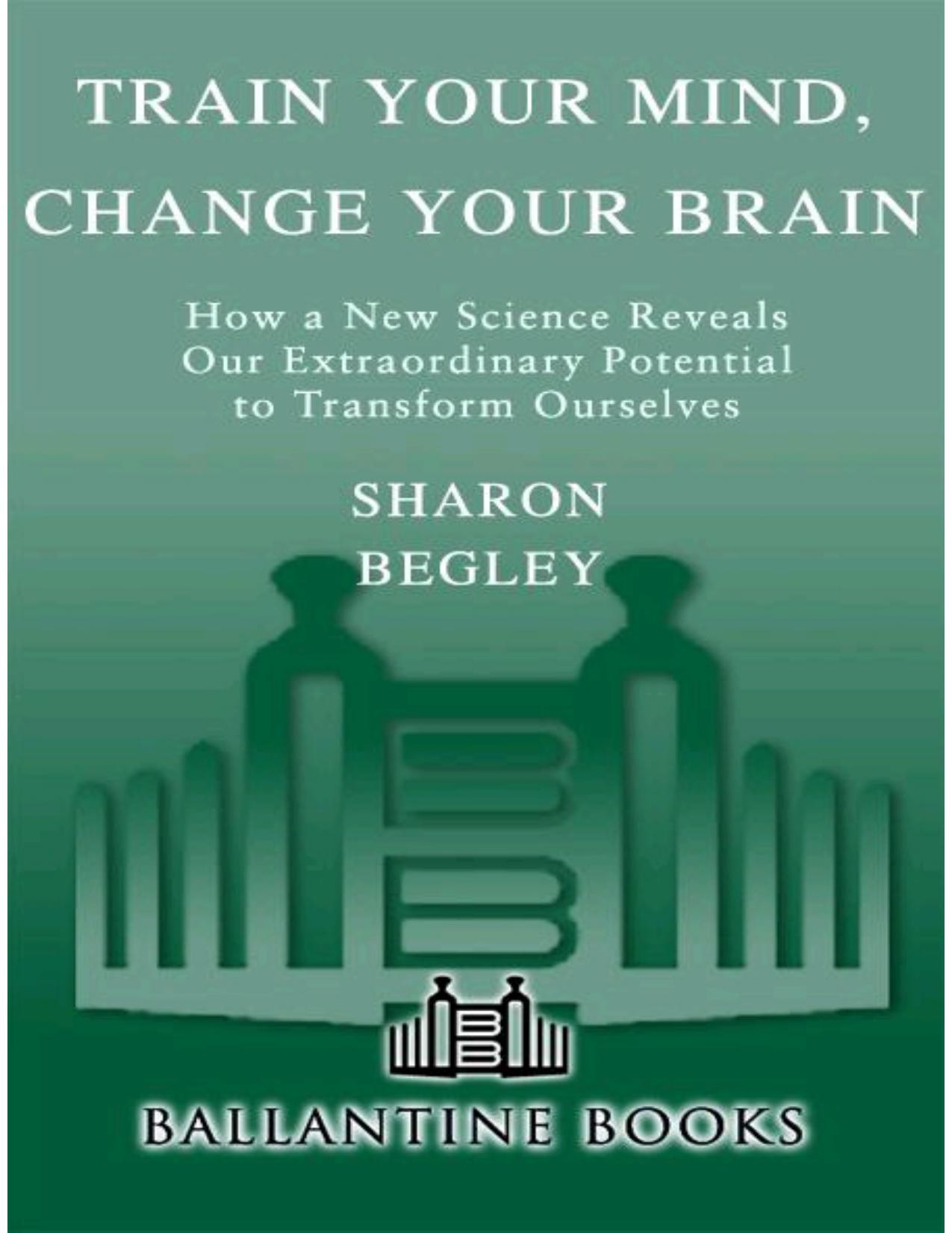Train Your Mind, Change Your Brain by Sharon Begley

Author:Sharon Begley [Begley, Sharon]
Language: eng
Format: epub, pdf
ISBN: 978-0-307-49208-1
Publisher: Random House Publishing Group
Published: 2007-03-26T16:00:00+00:00
Quieting the OCD Circuit
As discussed in the two preceding chapters, scientists were piling up examples of how sensory input—signals carried into the brain from the outside world—can alter the structure of the adult human brain. Thanks to neuroplasticity, the extra sensory input a violinist experiences causes the brain’s representation of the fingering digits to expand, and the extra sensory input a stroke patient experiences in constraint-induced movement therapy causes the brain’s representation of the injured arm and hand to move to healthy tissue. Thanks to neuroplasticity, depriving the visual cortex of visual signals causes it to seek other employment opportunities, such as handling sounds or touch or even language. All of these changes arose from the world outside the brain. Neuropsychiatrist Jeffrey Schwartz of the University of California–Los Angeles suspected that signals capable of changing the brain could arrive not only from the outside world through the senses. They could come from the mind itself.
Schwartz and colleague Lewis Baxter had launched a behavior-therapy group to study and treat obsessive-compulsive disorder. In this neuropsychiatric disease, patients are barraged by upsetting, intrusive, unwanted thoughts (obsessions) that trigger intense urges to perform ritualistic behaviors (compulsions). Depending on the patient, the compulsion can be to wash hands, to check door locks or stove burners, to count stop signs or windows or blackbirds or anything else on which he or she has fixated. Together, the obsessions and compulsions can become all-consuming, making leaving the house, holding a job, or forming meaningful relationships just about impossible. Oddly, however, in all but the most severe cases, the intrusive thoughts and fixations feel as if they are arising from a part of the mind that is not the real you. Sufferers describe feeling as if a hijacker has taken over their brain’s controls. As a result, OCD patients who feel compelled to wash their hands know full well that their hands are not dirty; those who feel compelled to dash home to check that the front door is locked know that it is securely bolted. OCD has a lifetime prevalence of 2 to 3 percent. In round numbers, it affects an estimated 1 person in 40, or more than 67 million Americans, typically striking in adolescence or early adulthood and showing no marked preference for males or females.
According to brain-imaging studies, OCD is characterized by hyper-activity in two regions: the orbital frontal cortex and the striatum. The main job of the orbital frontal cortex, which is tucked into the underside of the front of the brain, seems to be to notice when something is amiss. It is the brain’s error detector, its neurological spell-checker. When overactive, as in OCD patients, it fires repeatedly, bombarding the rest of the brain with the crushing feeling that something is wrong. The second overactive structure, the striatum, is nestled deep in the core of the brain just forward of the ears. It receives inputs from other regions, including the orbital frontal cortex and the amygdalae, twin structures that are the seat of fear and dread.
Download
Train Your Mind, Change Your Brain by Sharon Begley.pdf
This site does not store any files on its server. We only index and link to content provided by other sites. Please contact the content providers to delete copyright contents if any and email us, we'll remove relevant links or contents immediately.
Periodization Training for Sports by Tudor Bompa(8271)
Why We Sleep: Unlocking the Power of Sleep and Dreams by Matthew Walker(6725)
Paper Towns by Green John(5190)
The Immortal Life of Henrietta Lacks by Rebecca Skloot(4588)
The Sports Rules Book by Human Kinetics(4386)
Dynamic Alignment Through Imagery by Eric Franklin(4217)
ACSM's Complete Guide to Fitness & Health by ACSM(4060)
Kaplan MCAT Organic Chemistry Review: Created for MCAT 2015 (Kaplan Test Prep) by Kaplan(4012)
Livewired by David Eagleman(3772)
Introduction to Kinesiology by Shirl J. Hoffman(3769)
The Death of the Heart by Elizabeth Bowen(3621)
The River of Consciousness by Oliver Sacks(3604)
Alchemy and Alchemists by C. J. S. Thompson(3520)
Bad Pharma by Ben Goldacre(3427)
Descartes' Error by Antonio Damasio(3278)
The Emperor of All Maladies: A Biography of Cancer by Siddhartha Mukherjee(3162)
The Gene: An Intimate History by Siddhartha Mukherjee(3098)
The Fate of Rome: Climate, Disease, and the End of an Empire (The Princeton History of the Ancient World) by Kyle Harper(3067)
Kaplan MCAT Behavioral Sciences Review: Created for MCAT 2015 (Kaplan Test Prep) by Kaplan(2986)
